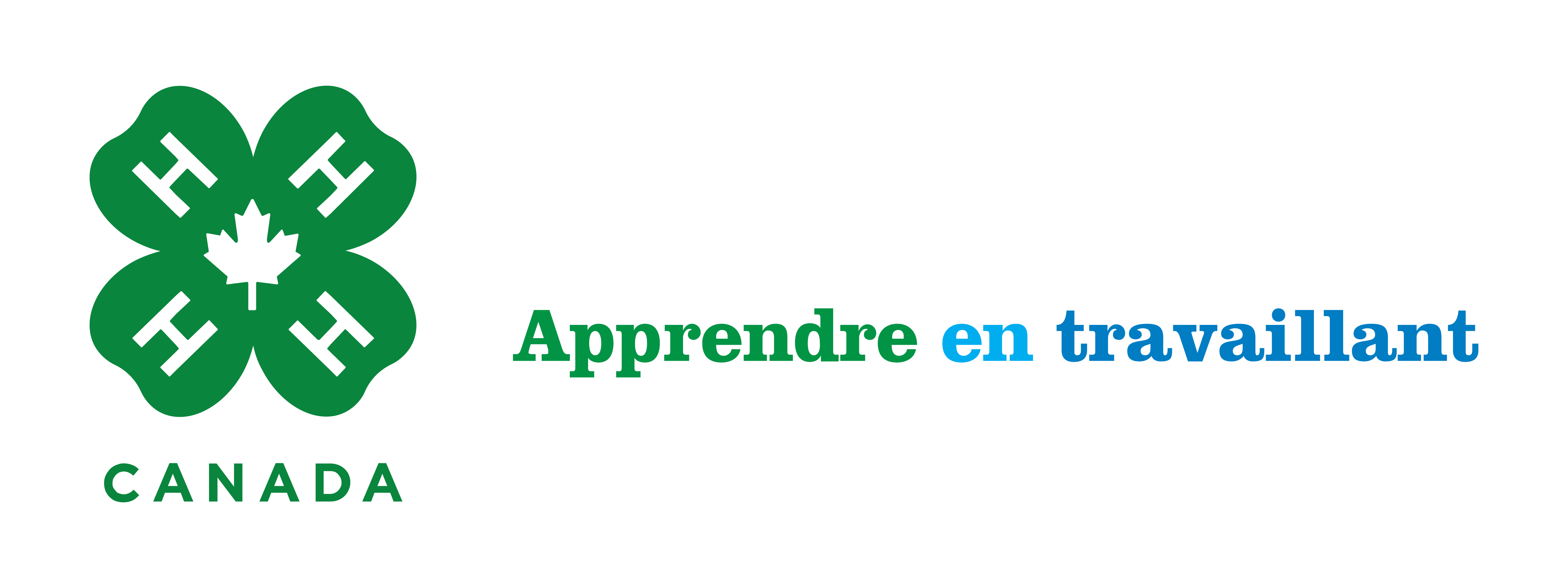Les 4-H du Canada et Bayer appuient le développement de jeunes esprits prometteurs en sciences et technologies
Ottawa(Ontario) – le 9 juin 2016 – Les 4-H du Canada et Bayer sont fiers d’appuyer les jeunes esprits prometteurs qui contribuent aux domaines des sciences et de l’agriculture et de l’agroalimentaire au Canada. Avec l’appui généreux de Bayer, partenaire des 4-H du Canada pour le volet Sciences et technologies, les 4-H du Canada ont inauguré cette année leur première Expo-sciences, qui a offert à ses gagnants une place au 55e Festival pancanadien des sciences qui a eu lieu récemment à Montréal, au Québec.
Quatre jeunes des 4-H ont participé au Festival pancanadien des sciences après avoir remporté l’Expo-sciences des 4-H du Canada, qui s’est déroulé au campus agricole de l’université Dalhousie, au début du mois de mars 2016 (Photo en pièce jointe). En plus d’avoir décerné deux prix des 4-H du Canada, les 4-H du Canada sont fiers de compter deux membres des 4-H de l’Île-du-Prince-Édouard, Neleah Lavoie et Megan Downe, qui ont remporté une médaille de bronze dans la catégorie junior pour leur projet intitulé Reward vs. Punishment – Which is the better motivator? (Récompenses c. punitions – lequel représente la meilleure source de motivation?)
L’Expo-sciences des 4-H du Canada s’inscrit dans l’engagement continu des 4-H du Canada en faveur de l’acquisition de compétences et de connaissances scientifiques et technologiques chez les jeunes par l’entremise de programmes 4‑H. En plus des programmes destinés aux jeunes, les 4-H du Canada s’efforcent également d’accroître la capacité de transfert des compétences et des connaissances en sciences et technologies, en formant des adultes bénévoles membres des 4-H au Canada pour devenir des champions des sciences au sein de leur collectivité. Ensemble, les 4-H du Canada et Bayer espèrent poursuivre le développement des programmes lors d’une première année couronnée de réussite, en accroissant le nombre de champions des sciences au Canada et en inaugurant la deuxième année de l’Expo-sciences des 4-H du Canada auprès d’un plus grand nombre de jeunes des 4-H.
« Le programme des sciences et des technologies des 4-H cultive la passion scientifique des jeunes innovateurs et innovatrices, se réjouit Derrick Rozdeba, vice-président des communications de Bayer Canada. Nous souhaitons à nos lauréats de poursuivre leur chemin de découverte dans le monde des sciences et des technologies en vue d’améliorer nos conditions de vie. »
« Félicitations à tous nos participants des 4-H au Festival pancanadien des sciences », a déclaré Shannon Benner, présidente-directrice générale des 4-H du Canada. Grâce à notre généreux partenaire Bayer, les 4-H du Canada sont fiers de reconnaître les jeunes qui se passionnent pour les sciences et les technologies, et de célébrer l’immense pouvoir de nos jeunes esprits de partout au Canada pour faire une différence dans des domaines tels que l’agriculture et l’agroalimentaire. »
Pour en savoir plus sur l’Expo-sciences et les autres programmes scientifiques des 4-H du Canada, visitez notre site Web : www.4-H-Canada.ca.
-30-
TITRE D’APPEL DE LA PHOTO :LES GAGNANTS DE L’EXPO-SCIENCES DES 4-H À L’EXPO-SCIENCES PANCANADIENNE À MONTRÉAL, AU QUÉBEC, LE 18 AU 20 MAI 2016. LES QUATRE MEMBRES 4-H ONT EU LA CHANCE DE CONCURRENCER AVEC 500 JEUNES D’AUTOUR CANADA POUR PLUS QUE 1 000 000 $ EN PRIX ET RECOMPENSES. ENTRE EU, ILS ONT RAMENÉ DEUX MÉDAILLES DE BRONZE.
À propos des 4-H du Canada
Depuis plus de 100 ans, les 4-H du Canada représentent un des organismes de développement positif des jeunes les plus respectés au Canada. Les 4-H du Canada comptent d'ailleurs plus de 24 000 membres et 7 400 bénévoles. Notre objectif est d'aider les jeunes Canadiens à « apprendre en travaillant » dans un environnement sécuritaire, inclusif et amusant. Nous croyons dans la formation de jeunes leaders confiants, responsables et engagés qui sont voués à avoir un impact positif sur les communautés aux quatre coins du Canada et partout dans le monde. Pour en apprendre davantage au sujet des 4-H du Canada, veuillez visiter le www.4-H-Canada.ca.
À propos de Bayer
Bayer est une entreprise mondiale disposant de compétences fondamentales dans les domaines des soins de santé et de l’agriculture. Ses produits et services sont conçus pour apporter des bienfaits aux gens et améliorer leur qualité de vie. Le groupe vise également à créer de la valeur grâce à l’innovation, à la croissance et à un potentiel de profit élevé. Bayer accorde une grande importance aux principes de développement durable et à ses responsabilités sociales et éthiques à titre d’entreprise citoyenne. Au cours de l’exercice 2015-2016, Bayer comptait environ 117 000 employés et jouissait de ventes s’élevant à 46,3 milliards d’euros. Ses dépenses en immobilisations totalisaient 2,6 milliards d’euros, et celles en recherche et développement, 4,3 milliards. Ces chiffres comprennent le secteur des polymères de haute technologie, représenté sur le marché boursier par une entreprise indépendante du nom de Covestro en date du 6 octobre 2015. Pour en savoir plus, visitez le site https://www.bayer.com.
Pour obtenir de plus amples renseignements, les médias peuvent communiquer avec :
Elizabeth Jarvis
Directrice du marketing et des communications des 4-H du Canada
ejarvis@4-hcanada.ca
613-759-1013 (poste 130) ou 613-809-7141
Komie Hossini
Marketing et communications, Bayer CropScience Inc.
komie.hossini@bayer.com
403-723-7485
